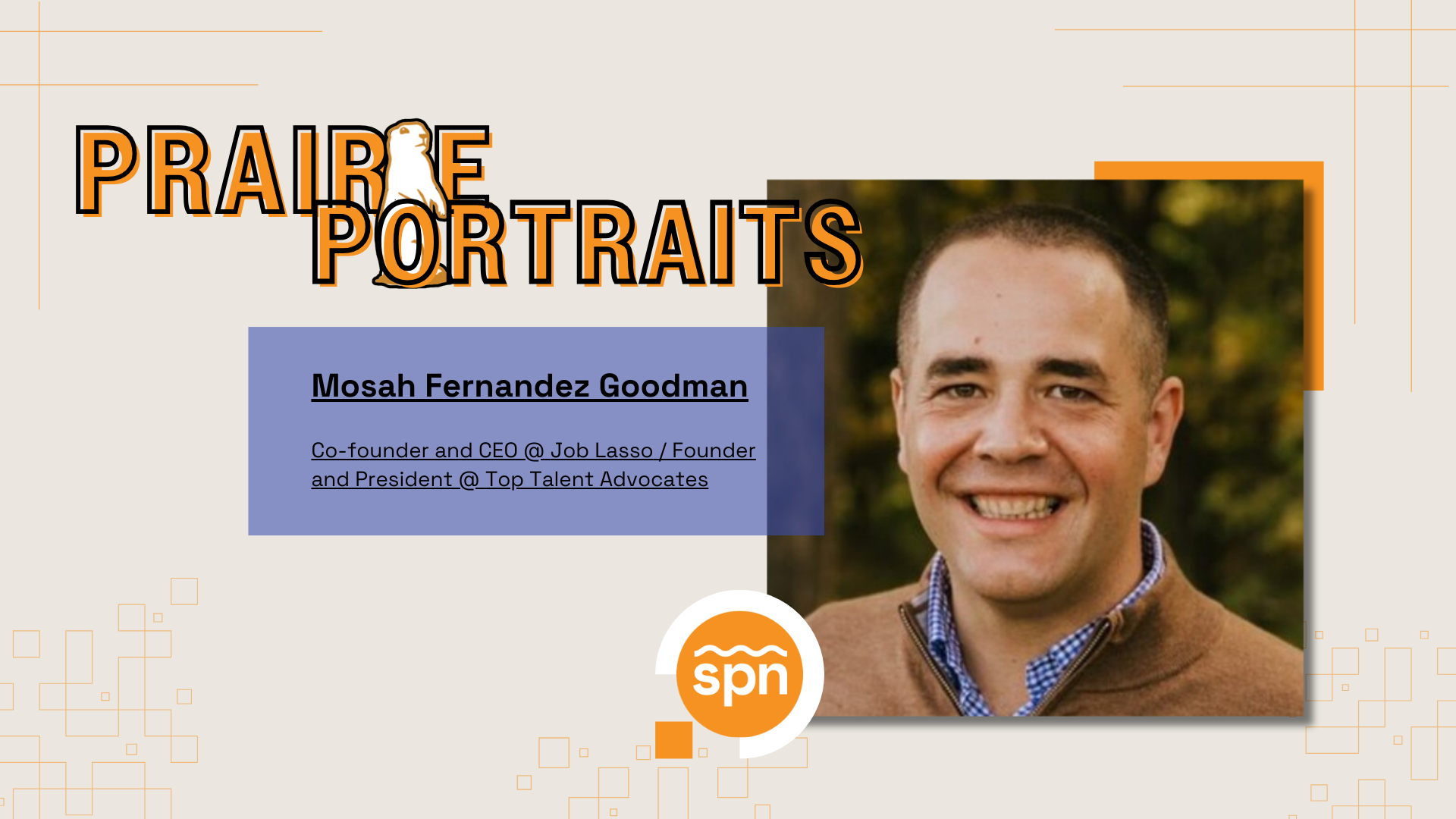
John Wirtz has helped guide Hudl’s growth from a project for three MBA students in 2006 to a company with a client-base of more than 6,000 teams this season. Photo by Brittany Mascio.
On the eve of kicking off the football season that will be his company’s biggest yet, Hudl COO John Wirtz presented at Cornstalks on Thursday night, sharing some pages from a playbook that’s helped Hudl build its field’s top-ranked team over the last five years.
Hudl, based in Lincoln, makes web-based analysis and coaching tools for sports teams. Established by Wirtz, David Graff and Brian Kaiser when they were MBA students at the University of Nebraska-Lincoln in 2006, Hudl became the largest player in online video analysis for high school teams with its acquisition of DSV, previously its top competitor, in July.
Hudl now has 41 full-time employees and expects a client base of about 45 NFL and NCAA Division I football teams and 6,000-7,000 high school teams this season. On Thursday night, Wirtz — and Graff, who was in attendance but didn’t officially present — shared insights on the company’s hockey-stick — or field goal upright, as it were — growth.
The value of business plan competitions
During MBA school, Hudl’s founders traveled the country presenting their business plan at competitions. It paid off, to the tune of about $60,000 in prize money, which allowed the team to hire its first developer and intern and build its first prototype. That put them in a good position when it came time to seek angel money.
“One thing we learned pretty quickly is if you’re serious about your company and you’ve got a well thought-out idea, especially if you’ve got a prototype or something to show, these can be a great opportunity to go get some great feedback and win some cash,” Wirtz said.
“If you can find some competitions to go to, whether you win them or not, throw the business plan together, just a little bit of structure around it, and go give your pitch, possibly get some feedback and win some money.”
Recognizing a market and pivoting
The company was established with a vision to conquer the highest levels of football before moving on to professional basketball and baseball.
The company’s original system “definitely was geared for Division I and NFL teams,” Wirtz said. “It was kind of expensive, a little weighty, and that’s where we saw our future was we were going to have every NFL and every Division I football team in the country.”
Soon, the company recognized a major need in the high school space and, today, even has youth teams among its clients.
“It’s niche in that its sports,” Wirtz said, “but we want to be across a lot of areas of sports.”
During his presentation Thursday, Wirtz touched on his affinity for running a startup on the Silicon Prairie. Photo by Brittany Mascio.
Huskers and Jets … oh my
In 2007, Hudl worked with the Nebraska football team, providing experience and insight that Wirtz said was invaluable. Said Wirtz: “Nebraska was definitely a huge asset for us — our first paying beta client, taught us a lot.”
When Nebraska coach Bill Callahan left Lincoln and landed with the New York Jets in 2008, Hudl eventually picked up its first NFL client.
“That was a super exciting time around Hudl,” Wirtz said, “and gave us a lot of understanding of the NFL space.”
Growing pains
With a team of about 10 full-time employees in 2008, Hudl took the plunge and built out a system specifically for high schools, starting with 12 pilot teams. Wirtz said it was trying at times but taught Hudl about the market that has since become its bread and butter.
“It was a challenging football season for me and the wife and the company – lots of late-night phone calls, lots of late-night, 3 a.m. sessions at Lincoln East High School in their football office/trailer, trying to figure out why the video wasn’t publishing,” Wirtz said. “But that’s really where we kind of took our knocks and figured out how the high school space worked.”
“Dominate”
Hudl established “dominate” as its mantra, and it’s clearly more than just a buzzword or catchy T-shirt slogan for the company. Wirtz said the desire to dominate guides every decision. In fact, it has actually kept Hudl from pursuing certain verticals that the company wasn’t quite ready to “dominate” yet.
“We don’t like to do anything unless we can be the best at it,” he said. “So one of the things we take to heart is if we’re going to do something and we’re not going to be world class, best at it, we should seriously question whether we should be doing it.”
“We don’t like to do anything unless we can be the best at it. So one of the things we take to heart is if we’re going to do something and we’re not going to be world class, best at it, we should seriously question whether we should be doing it.” -Wirtz on Hudl’s ‘dominate’ mantra
Cheers to Chapman
For Tom Chapman, the founder and organizer of Cornstalks, Thursday was his final gathering at the helm of Omaha’s monthly meeting of entrepreneurial minds. Chapman, who was formerly the director of entrepreneurship and innovation for the Greater Omaha Chamber of Commerce, starts a new job this week at Nebraska Global, and he was sent off Thursday with well-wishes and a champagne toast.




